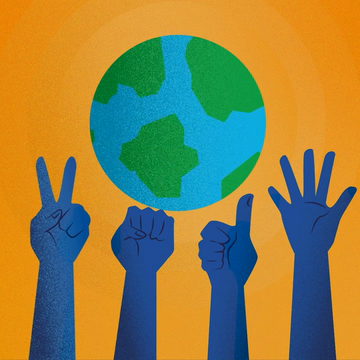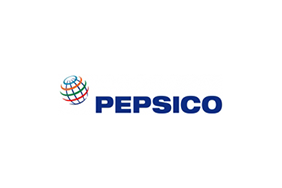PepsiCo Releases 2019 Sustainability Report; Highlights Progress Toward Helping to Build a More Sustainable Food System
Published 06-18-20
Submitted by PepsiCo
 Click here to watch video
Click here to watch videoPepsiCo, Inc. (NASDAQ: PEP) today published its 2019 Sustainability Report, highlighting progress toward its sustainability goals and reaffirming the company's agenda to help build a more sustainable food system.
"Today's global environmental and societal pressures are bringing into sharp focus the need for systemic change," said Ramon Laguarta, PepsiCo's CEO and Chairman. "These challenges not only require deeper commitment from the private sector, they also require demonstrated and sustained action. As a global food and beverage leader, we have a responsibility to use our scale and influence to help tackle long-term challenges, including addressing the threats to our food system which have been further strained by the unfolding pandemic. We're making significant progress that I'm very proud of. We know it will take even more, however. From how we grow food and make products, to inspiring positive change – we are committed to help build a better future for people and the planet."
The 2019 Sustainability Report shares progress across the priority areas where PepsiCo believes it can have the most meaningful impact: agriculture, water, climate, packaging, products, and people. Highlights include:
Delivering Safe Water Access: PepsiCo believes water is a human right and its philanthropic arm The PepsiCo Foundation has helped more than 44 million people in underserved communities around the world gain access to safe water through distribution, purification and conservation programs since 2006, far surpassing its goal to reach 25 million by 2025. Building on the success of these programs, PepsiCo has set an ambitious new target to reach a total of 100 million people by 2030 and will focus its near-term work on water distribution, sanitation, and hygiene programs to bolster public health in the wake of COVID-19.
Sourcing Ingredients through More Sustainable and Resilient Agriculture: On farms around the world, PepsiCo is working to improve farmer livelihoods, while raising standards for efficient resource use, environmental consciousness, and worker rights. Through the company's Sustainable Farming Program (SFP), in 2019, nearly 80% of PepsiCo's farmer-sourced agricultural raw materials, like potatoes, whole corn, oranges, and oats were verified as sustainably sourced, meeting the SFP's robust criteria, progress towards meeting its goal to reach 100% by the end of 2020.
Accelerating Climate Action: PepsiCo reduced its absolute GHG emissions by 6% across its global value chain in 2019. In April 2020, PepsiCo affirmed its plans to accelerate action on climate change by signing the UN's Business Ambition for 1.5°C pledge, joining other leading companies in committing to set science-based emissions-reduction targets across its entire value chain, aimed at limiting global warming to 1.5°C, while also developing a long-term strategy for achieving net-zero emissions by 2050. This builds on PepsiCo's announcement earlier in the year that the company is shifting to 100% renewable electricity through a diverse portfolio of solutions for direct operations in the U.S., its largest market. Nine countries in PepsiCo's European business operations already use 100% of their electricity from renewable sources.
"As we look to the decade ahead, global efforts to mitigate climate change and support a more sustainable and inclusive future are more crucial than ever," said Simon Lowden, PepsiCo's Chief Sustainability Officer. "From providing access to safe water in underserved communities, to working with farmers to grow crops more sustainably, to innovating around packaging, we remain focused on our long-term agenda. It will require agility, collective action and collaboration, and as we think about our approach, we're determined to embrace an important lesson of COVID-19: The world can mobilize quickly when working together toward a shared goal. We know building a more resilient food system is possible, and we'll continue working with partners around the world to catalyze change for a better tomorrow."
The all-digital and interactive 2019 Sustainability Report is accompanied by a summary, highlighting progress against goals, and other downloadable resources. Detailed information about the company's current policies and performance related to specific key issues can be found in a dedicated ESG topics section of the company's website.
The report and downloadable assets are available here.
Earlier this month, PepsiCo also published its inaugural Human Rights Report, outlining its commitment, approach, and progress in advancing respect for human rights. Over the past decade, PepsiCo has taken targeted action to identify, prevent and address potential human rights impacts across its value chain. Following the inaugural report, PepsiCo is committed to regularly reporting and bringing greater transparency to its progress and work relating to Human Rights. To read the full PepsiCo Human Rights Report visit our Human Rights ESG topics page.
About PepsiCo
PepsiCo products are enjoyed by consumers more than one billion times a day in more than 200 countries and territories around the world. PepsiCo generated more than $67 billion in net revenue in 2019, driven by a complementary food and beverage portfolio that includes Frito-Lay, Gatorade, Pepsi-Cola, Quaker and Tropicana. PepsiCo's product portfolio includes a wide range of enjoyable foods and beverages, including 23 brands that generate more than $1 billion each in estimated annual retail sales.
Guiding PepsiCo is our vision to Be the Global Leader in Convenient Foods and Beverages by Winning with Purpose. "Winning with Purpose" reflects our ambition to win sustainably in the marketplace and embed purpose into all aspects of the business. For more information, visit www.pepsico.com.
Cautionary Statement
This release contains statements reflecting our views about our future performance that constitute "forward-looking statements" within the meaning of the Private Securities Litigation Reform Act of 1995. Forward-looking statements are generally identified through the inclusion of words such as "aim," "anticipate," "believe," "drive," "estimate," "expect," "goal," "intend," "may," "plan," "project," "strategy," "target" and "will" or similar statements or variations of such terms and other similar expressions. Forward-looking statements inherently involve risks and uncertainties that could cause actual results to differ materially from those predicted in such statements, including the impact of the spread of COVID-19; future demand for PepsiCo's products, as a result of changes in consumer preferences or otherwise; changes in laws related to the use or disposal of plastics or other packaging of PepsiCo's products; changes in, or failure to comply with, applicable laws and regulations; imposition or proposed imposition of new or increased taxes aimed at PepsiCo's products; imposition of labeling or warning requirements on PepsiCo's products; PepsiCo's ability to compete effectively; political conditions, civil unrest or other developments and risks in the markets where PepsiCo's products are made, manufactured, distributed or sold; PepsiCo's ability to grow its business in developing and emerging markets; uncertain or unfavorable economic conditions in the countries in which PepsiCo operates; the ability to protect information systems against, or effectively respond to, a cybersecurity incident or other disruption; increased costs, disruption of supply or shortages of raw materials and other supplies; water scarcity; business disruptions; product contamination or tampering or issues or concerns with respect to product quality, safety and integrity; damage to PepsiCo's reputation or brand image; failure to successfully complete, integrate or manage acquisitions and joint ventures into PepsiCo's existing operations or to complete or manage divestitures or refranchisings; PepsiCo's ability to recruit, hire or retain key employees or a highly skilled and diverse workforce; loss of, or a significant reduction in sales to, any key customer; disruption to the retail landscape, including rapid growth in the e-commerce channel and hard discounters; climate change or legal, regulatory or market measures to address climate change; potential liabilities and costs from litigation, claims, legal or regulatory proceedings, inquiries or investigations; and other factors that may adversely affect the price of PepsiCo's publicly traded securities and financial performance. For additional information on these and other factors that could cause PepsiCo's actual results to materially differ from those set forth herein, please see PepsiCo's filings with the Securities and Exchange Commission, including its most recent annual report on Form 10-K and subsequent reports on Forms 10-Q and 8-K. Investors are cautioned not to place undue reliance on any such forward-looking statements, which speak only as of the date they are made. PepsiCo undertakes no obligation to update any forward-looking statements, whether as a result of new information, future events or otherwise.
Press Contact: pepsicomediarelations@pepsico.com

PepsiCo
PepsiCo
PepsiCo products are enjoyed by consumers one billion times a day in more than 200 countries and territories around the world. PepsiCo generated more than $66 billion in net revenue in 2014, driven by a complementary food and beverage portfolio that includes Frito-Lay, Gatorade, Pepsi-Cola, Quaker and Tropicana. PepsiCo's product portfolio includes a wide range of enjoyable foods and beverages, including 22 brands that generate more than $1 billion each in estimated annual retail sales.
At the heart of PepsiCo is Performance with Purpose - our vision to deliver financial performance over the long term by integrating sustainability into its business strategy, leaving a positive imprint on society and the environment. We do this in part by offering a wide range of products; increasing the number of our nutritious foods and beverages; reducing our environmental impacts; and supporting our employees and the communities where we do business; all of which will help position the company for long-term sustainable growth. For more information, visit www.pepsico.com.
More from PepsiCo

